

|
Commenced:
|
01/12/2011 |
|---|---|
|
Submitted:
|
04/05/2012 |
|
Last updated:
|
28/01/2020 |
|
Location:
|
Noumea, NC |
|
Phone:
|
+ (687) 78 14 01 |
|
Climate zone:
|
Wet/Dry Tropical |
Green Waste Composting Platform
Currently, in Nouméa, New Caledonia there is about 170 000 people living in a growing city.
 Beautiful Nouméa
Beautiful Nouméa
Unfortunately the city is not ready to treat all the wast, and there is no large scale recycling policy yet. That basically means that even the green waste (a good resource as all permies knows) is put into the landfill mixed with plastic, metal, other organic material, and so on...
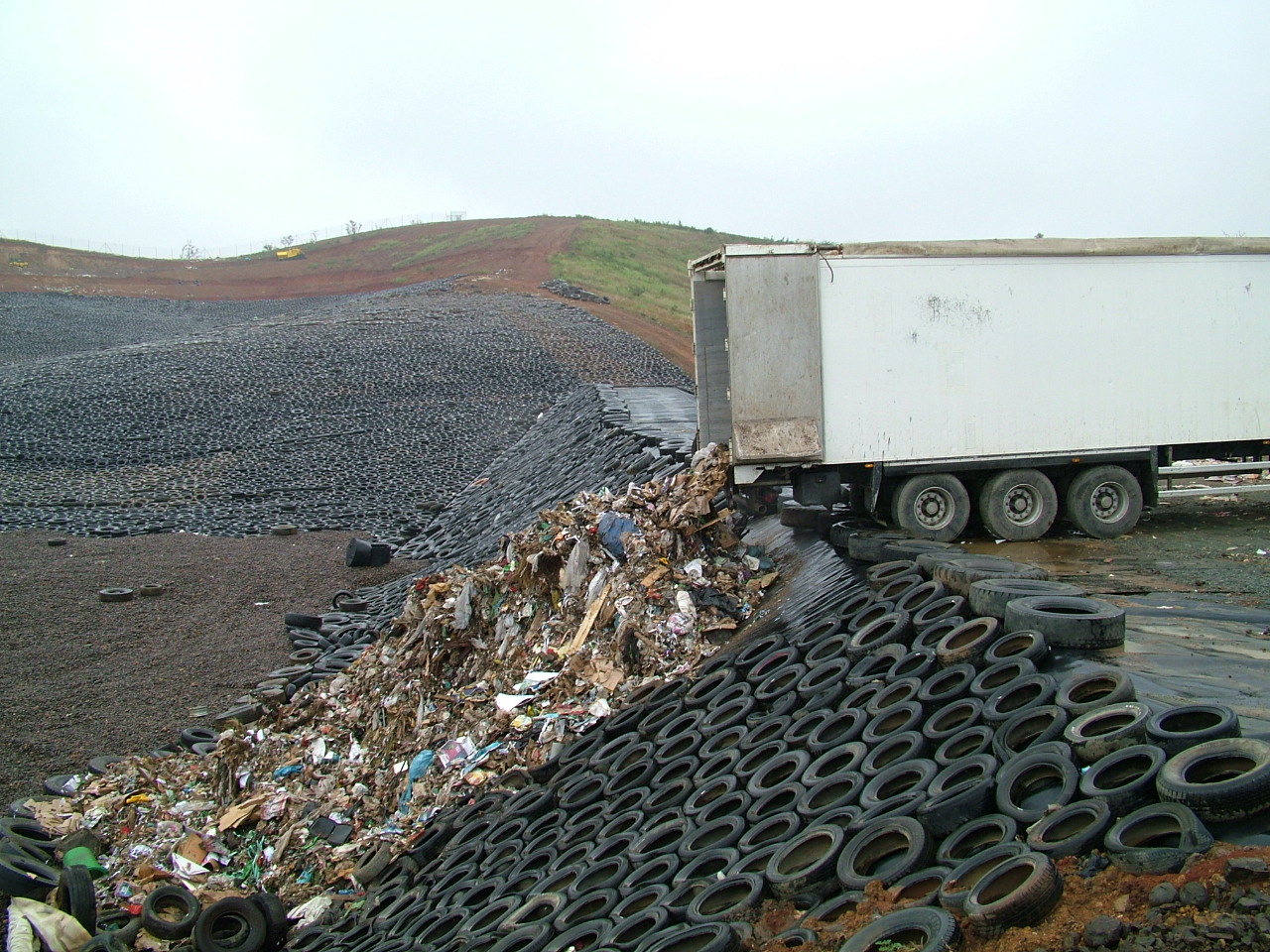 The Landfill
The Landfill
After an internship at Zaytuna Farm, Bertille (my wife) and I came back full of good ideas to help our country to find simple solutions. Bertille start a large scale garden, to be able to teach how to grow food organically in the tropics, and I start working in making a small scale composting platform, treating green waste.
To make a long story short, after two weeks of working that concept I was in front of the owner of the company who treat all the waste of Nouméa and suburbs! The need to finding solutions was so urgent, and I was at the good spot at the good time. He simply told me to continue with my project, but for a 3000 tonnes/year platform!
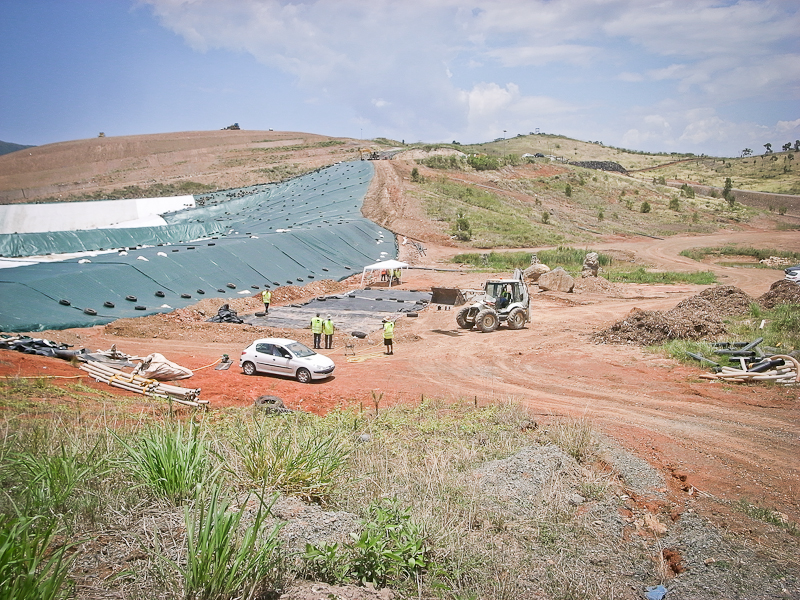 The test spot,at the landfill
The test spot,at the landfill
It was really a challenge, and for someone like me, who waned to change things, this was the good thing to do... We start the feasibility study 6 month ago, we've pass through really intense moments, goods and bads, but here we are still!
A lot of things had to be done, checking the regulation and the administration of this kind of structure, making a market study, making an industrial schema, choosing the tools and how all will work, learning how much room we'll be needing, quantify the costs, making a business plan...
We've made a big scale test, with 3 20m3 windrows of "bad quality-bad shredded-too dry-too much carbon" green waste, but we managed to finish with a good quality product.
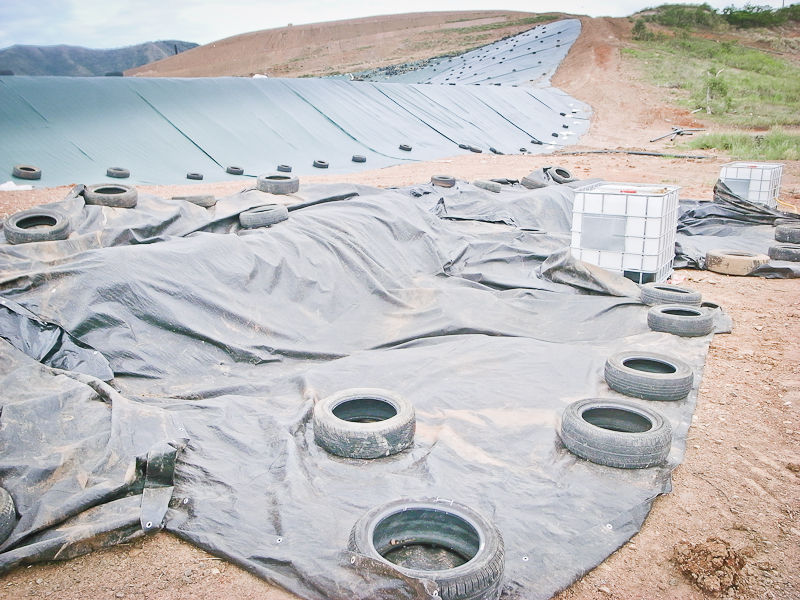
Our test "in progress"
The basic concept is to deviate good quality green wast from the landscape maintenance to make good quality compost that is able to be sold in bags to sell to private gardeners and landscape designers instead of buying imported compost.
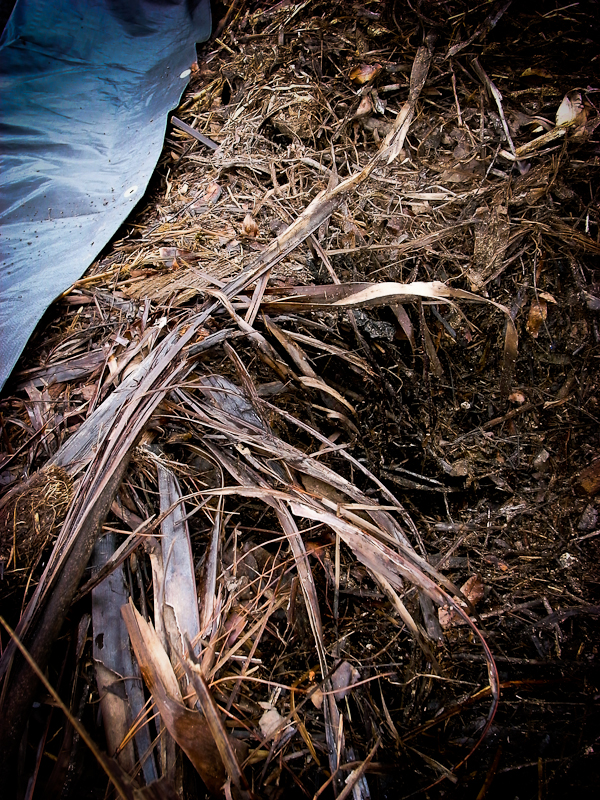
Green waste becoming compost
We are about to finish the feasibility study, a lot of our questions where answer, a lot remain to be, but that's what happens when you start something that nobody else tried before...
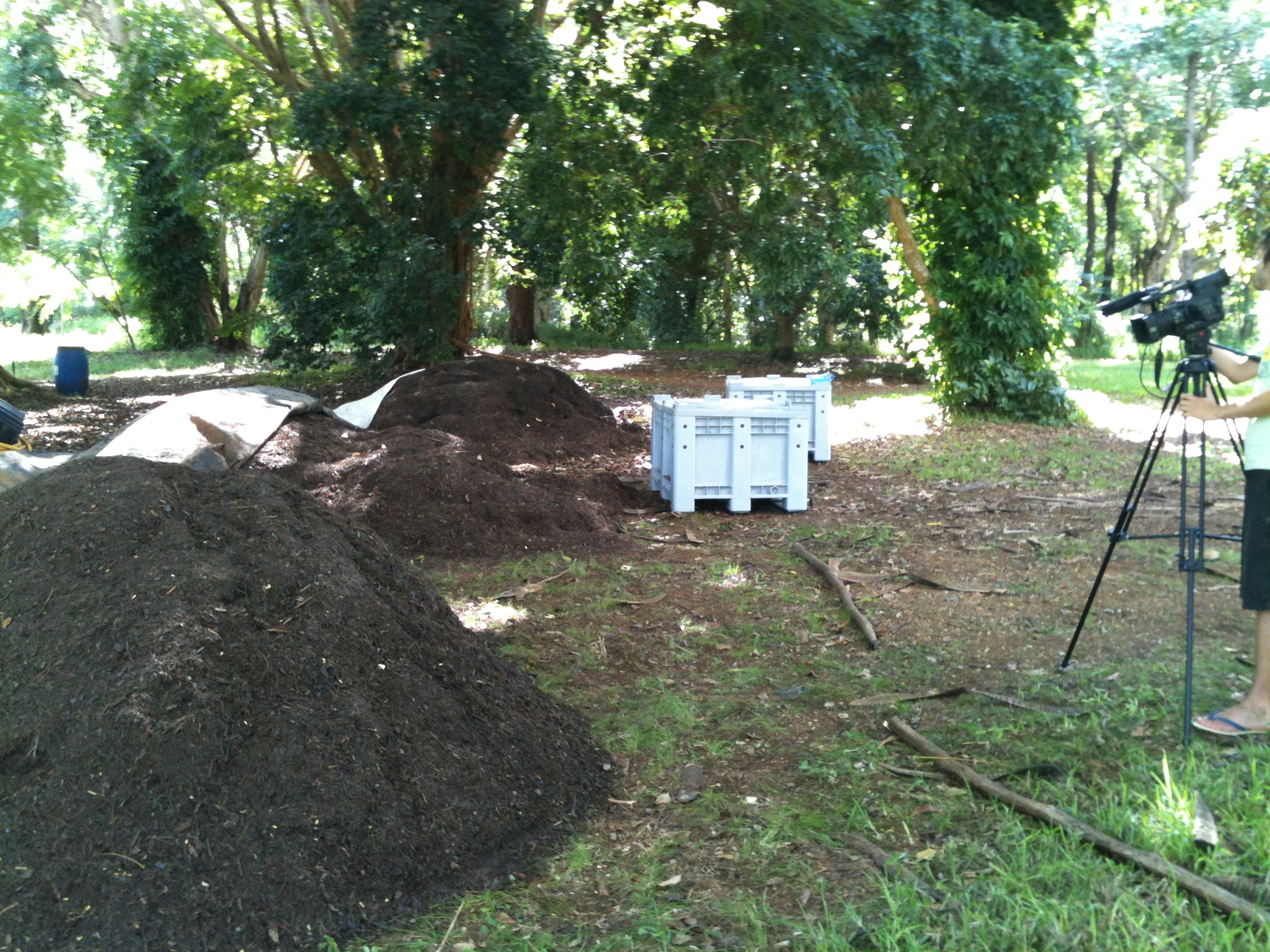
The finished compost, at home
I'll update as soon as I have some news.
Note: The various badges displayed in people profiles are largely honesty-based self-proclamations by the individuals themselves. There are reporting functions users can use if they know of blatant misrepresentation (for both people and projects). Legitimacy, competency and reputation for all people and projects can be evidenced and/or developed through their providing regular updates on permaculture work they’re involved in, before/after photographs, etc. A spirit of objective nurturing of both people and projects through knowledge/encouragement/inspiration/resource sharing is the aim of the Worldwide Permaculture Network.
 |
MemberA member is a permaculturist who has never taken a PDC course. These cannot become PDC teachers. Members may be novice or highly experienced permaculturists or anywhere in between. Watch their updates for evaluation. |
|---|---|
  |
Permaculture MatchmakerOne of these badges will show if you select your gender and the "I'm single, looking for a permaculture partner" option in your profile. |
 |
PDCPeople who claim to have taken a Permaculture Design Certificate (PDC) course somewhere in the world. |
 |
PDC VerifiedPeople who have entered an email address for the teacher of their PDC course, and have had their PDC status verified by that teacher. Watch their updates for evaluation. |
 |
PRI PDCPeople who’ve taken a Permaculture Research Institute PDC somewhere in the world. |
 |
PDC TeacherPeople who claim to teach some version of PDC somewhere in the world. |
 |
PRI TeacherWith the exception of the ‘Member’ who has never taken a PDC, all of the above can apply to become a PRI PDC Teacher. PRI PDC Teachers are those who the PRI recognise, through a vetting board, as determined and competent to teach the full 72-hour course as developed by Permaculture founder Bill Mollison – covering all the topics of The Designers’ Manual as well as possible (i.e. not cherry picking only aspects the teacher feels most interested or competent in). Such teachers also commit to focussing on the design science, and not including subjective spiritual/metaphysical elements. The reason these items are not included in the PDC curriculum is because they are “belief” based. Permaculture Design education concerns itself with teaching good design based on strategies and techniques which are scientifically provable. PRI PDC Teachers may be given teaching and/or consultancy offerings as they become available as the network grows. |
 |
Aid WorkerThe individual with this badge is indicating they are, have, or would like to be involved in permaculture aid work. As such, the individual may or may not have permaculture aid worker experience. Watch their updates for evaluation. |
 |
ConsultantThe individual with this badge is indicating they are, have, or would like to do paid permaculture design consultancy work. As such, the individual may or may not have permaculture consultancy experience. Watch their updates for evaluation. |
 |
Community ProjectCommunity projects are projects that help develop sustainable community interaction and increase localised resiliency. |
Terre & Vie video release
Check out the just finished video about all the process of composting (in French, sorry)